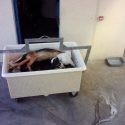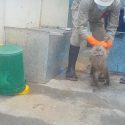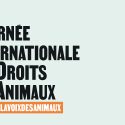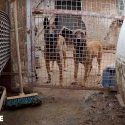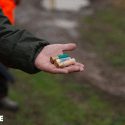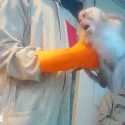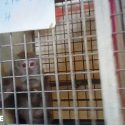Stray animals: France opts for massacring at pounds
Stray animals: France opts for massacring at pounds
11.12.2023
France
Stray animals: France opts for massacring at pounds
Domestic animals
To “clean” their streets, France has chosen a “strategy” of large-scale slaughtering. When an animal is seen wandering, town councils are in charge of involving the services of a pound. Once captured, they are kept for eight days in a cold kennel, as shown in our latest investigation. After this time, if they have not been claimed, they can be taken in by an association. But there are too many stray or abandoned animals for them to have any hope of finding a family. When the time period has passed, being slaughtered at a pound is what awaits them. Deaths by the thousands, in the greatest secrecy, even though solutions exist, as proven by our European neighbours.
For years, we have been fighting to raise awareness about the plight of stray cats and so that our leaders will finally take measures to stem this tragedy. Faced with a lack of action by the government, we are obliged to initiate legal proceedings to make things happen, while our neighbours are acting in concrete terms to stop abandonments.
Countering mass slaughter: neutering…
In September 2022, Greece implemented the “Argos Programme”, allocating a budget of 2.9 million euros to help town councils to improve stray animal welfare.
In Luxembourg, to reduce the number of abandoned cats, some towns offer individuals financial aid to get their animals neutered.
On the other side of the border, Belgium made neutering cats obligatory in 2018. An initiative that also applies to pet cats as well as street cats and which has borne fruit in just a few months: ‘euthanasias’ in pounds due to a lack of space have reduced by half, going from 37% to 13%. The Belgian government has gone further by offering grants to towns for neutering stray cats, but also by providing help for vulnerable people for the care of their animals.
… because killing an animal is indeed a criminal act
In Italy, since a law passed in 1991, stray cats and dogs’ lives have been protected. It is strictly forbidden to kill them for population control purposes. Only genuine euthanasias that are for medical reasons, in the case of incurable suffering, are authorised and must be carried out by a veterinarian. In 2018, the Italian court of cassation even confirmed the conviction of those responsible for illegal killings, who had executed dozens of animals without medical necessity and out of pure convenience.
This is a long way from what happens in our pounds, where animals can be slaughtered after eight days in freezing conditions… Solutions exist, and we are asking the authorities to finally take the necessary measures. Sign our petition for an end to massacres and demand the implementation of an urgent plan to put an end to the suffering of millions of stray cats with us.
Translated from the French by Joely Justice
